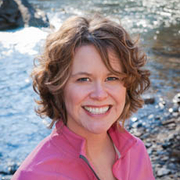- Level Foundation
- Duration 24 hours
- Course by Johns Hopkins University
-
Offered by

About
A food system encompasses the activities, people and resources involved in getting food from field to plate. Along the way, it intersects with aspects of public health, equity and the environment. In this course, we will provide a brief introduction to the U.S. food system and how food production practices and what we choose to eat impacts the world in which we live. We will discuss some key historical and political factors that have helped shape the current food system and consider alternative approaches from farm to fork. The course will be led by a team of faculty and staff from the Johns Hopkins Center for a Livable Future. Guest lecturers will include experts from a variety of disciplines, including public health, policy and agriculture.Modules
Welcome to the Course
1
Videos
- Welcome from Course Faculty
3
Readings
- Course Syllabus
- Optional Textbook, "Intro to US Food System: Health, Environment and Equity"
- Pre-Course Survey
Week 1 Resources
1
Readings
- Week 1 Readings and Resources
The Vicious Spiral and Center for Livable Future (CLF) Concept Model
4
Videos
- The Vicious Spiral and Center for Livable Future (CLF) Concept Model, Part 1
- The Vicious Spiral and Center for Livable Future (CLF) Concept Model, Part 2
- The Vicious Spiral and Center for Livable Future (CLF) Concept Model, Part 3
- The Vicious Spiral and Center for Livable Future (CLF) Concept Model, Part 4
Food Production, the Ecosystem, Diet, and Public Health
5
Videos
- Food Production, the Ecosystem, Diet, and Public Health, Part 1 (Lawrence)
- Food Production, the Ecosystem, Diet, and Public Health, Part 2 (Lawrence)
- Food Production, the Ecosystem, Diet, and Public Health, Part 3 (Lawrence)
- Food Production, the Ecosystem, Diet, and Public Health, Part 4 (Lawrence)
- Food Production, the Ecosystem, Diet, and Public Health, Part 5 (Lawrence)
Intergenerational Equity and the Right to Food
4
Videos
- Intergenerational Equity and the Right to Food: Part 1 (Lawrence)
- Intergenerational Equity and the Right to Food: Part 2 (Lawrence)
- Intergenerational Equity and the Right to Food: Part 3 (Lawrence)
- Intergenerational Equity and the Right to Food: Part 4 (Lawrence)
Week 1 Assignments
1
Assignment
- Week 1 Quiz (required)
1
Discussions
- What is your Ecological Footprint? (optional)
Week 2 Resources
1
Readings
- Module 2 Readings and Resources
Food System Sustainability and Resilience
5
Videos
- Sustainable Food Systems (Says Who?) (Neff)
- Converging Crises (Neff)
- Wasted Food: Putting 40% of Our Food Supply in the Landfill (Neff)
- What We Can Do: Policy, Sustainable Diets, and More (Neff)
- Food Resilience: No Regrets; Conclusions: Don’t Press Snooze! (Neff)
Week 2 Assignments
1
Assignment
- Module 2 Quiz (required)
1
Discussions
- What would you say...? (optional)
Week 3 Resources
1
Readings
- Week 3: Readings and Resources
Soil, Crop Production and Agroecology
5
Videos
- Industrial Crop Production/Agroecology (Kim)
- Soil Composition (Kim)
- Soil Ecosystem Services (Kim)
- Soil Degradation (Kim)
- Soil Conservation Measures (Kim)
What Does Agriculture Have to Do with Public Health?
2
Videos
- Modern Agriculture (Kirschenmann)
- Limits to Therapeutic Intervention (Kirschenmann)
Week 3 Assignments
1
Assignment
- Week 3 Quiz (required)
1
Discussions
- Industrial Farms are Good for the Environment (optional)
Week 4 Resources
1
Readings
- Module 4 Readings and Resources
An Introduction to Food Animal Production (Keeve Nachman)
4
Videos
- An Introduction to Industrial Food Animal Production
- What Are We Feeding Food Animals?
- Antibiotic Use in Industrial Food Animal Production
- International Food Animal Production
Seafood and Public Health (Jillian Fry)
3
Videos
- How Much Seafood Do People Eat, and Which Do We Eat Most?
- How and Where Is Seafood Caught and Produced?
- How Does Seafood Production Impact the Environment and Public Health?
Week 4 Assignments
1
Assignment
- Week 4 Quiz (required)
1
Discussions
- If You were a Philanthropist...? (optional)
Week 5 Resources
1
Readings
- Week 5 Readings and Resources
U.S. Food and Agriculture Policy: A Perspective from Public Health (Roni Neff)
5
Videos
- Overview and History of the Farm Bill I
- Overview and History of the Farm Bill II
- What Is in the Farm Bill? I
- What Is in the Farm Bill? II
- Farm Bill Politics
Closing the Food Gap (Mark Winne)
3
Videos
- History
- Future Perspective
- Update with Keeve Nachman
Week 5 Assignments
1
Assignment
- Week 5 Quiz (required)
1
Discussions
- I eat, therefore I .... (optional)
Week 6 Resources
1
Readings
- Week 6 Readings and Resources (**includes a Required Reading)
Sustainable Agriculture Imperative (Michael Heller)
3
Videos
- Introduction
- Criteria
- Local Food Systems
Advocacy for Better Health and a Smaller Footprint: The Meatless Monday Campaign (Sid Lerner, Pam Rhubart Berg, Peggy Neu)
1
Videos
- Advocacy for Better Health and a Smaller Footprint: The Meatless Monday Campaign
2
Readings
- Optional Video: Meatless Monday -- a simple idea sparks a global healthy food movement: Peggy Neu at TEDxManhattan (YouTube)
- Post Course Survey
Week 6 Assignments
1
Assignment
- Week 6 Quiz (required)
1
Discussions
- Please tell us... (optional)
Optional Lesson: Moving Towards a Better Food System
4
Videos
- Community Food Systems, Business, and the Green Economy
- Functions of a Food Policy Council
- Why the Food Movement is Spreading
- Food as Part of a New, Broader Concept of Health
Improving Food Systems: Stories from the Field -- Part 2
1
Peer Review
- Peer Review Written Assignment: Op-Ed
2
Readings
- VIDEO: Out To Pasture: The Future of Farming
- VIDEO: Food Frontiers
Auto Summary
Discover the intricacies of the U.S. food system with this foundational course from Coursera, led by Johns Hopkins experts. Explore the intersection of food production, public health, and environmental impact over 1440 minutes. Ideal for health and fitness enthusiasts, the course offers insights into historical, political, and alternative food practices. Available via Starter and Professional subscriptions.

Keeve Nachman, PhD, MHS

Robert S. Lawrence, MD

Pamela Rhubart Berg


